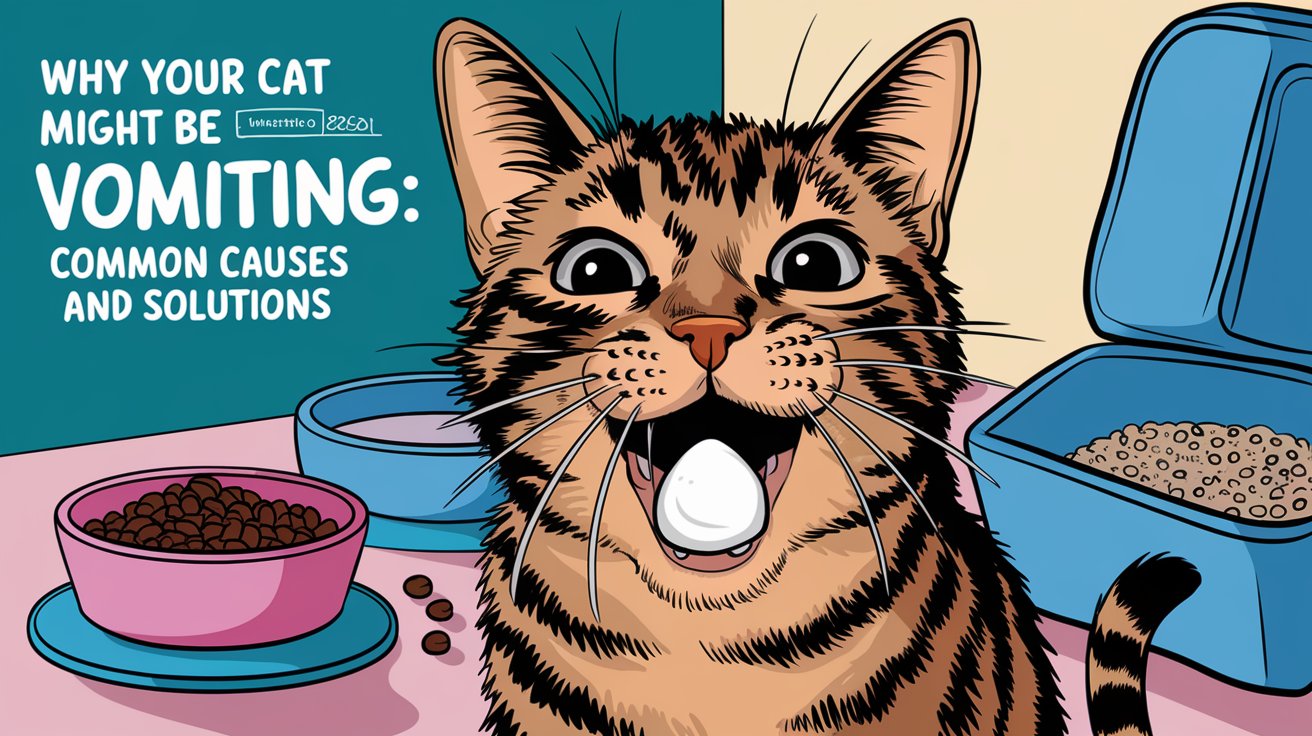Many cat owners face concern when their pet vomits frequently. Cat vomiting causes and solutions, the occasional vomiting of your cat usually indicates no serious medical concern even though repeated vomiting may signal underlying health problems. Understanding what makes your cat sick alongside possible remedies will help you maintain their health.
1. Hairballs
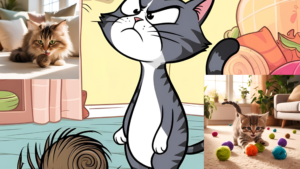
Long-haired cats experience hairballs most frequently as a reason for vomiting. Through the natural process of licking themselves cats manage to swallow the loose hairs from their coat. A stomach ball of hair occasionally appears inside their stomach leading to vomiting for elimination.
Solution:
Scheduled rounds of brushing your cat will minimize the amount of loose hair that your cat accidentally swallows.
Your cat will benefit from hairball control cat food together with hairball remedy usage.
2. Cat vomiting causes and solutions: Dietary Issues
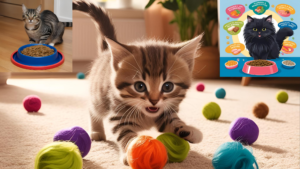
Your cat’s stomach becomes irritated when you offer sudden dietary changes or prompt mealtime. Your cat may develop vomiting because they consume food with low-quality ingredients and synthetic additives.
Solution:
Your cat should transition between different foods slowly during a period of 7 to 10 days.
Serve your cat breakfast and lunch in smaller portions to stop them from eating too much at one time.
Buy cat food products made from pure components and natural sources.
3. Cat vomiting causes and solutions: Food Allergies or Intolerances
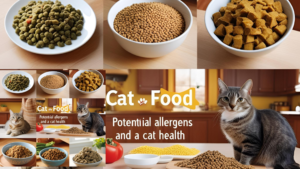
Due to their dietary sensitivities some cats show reactions to dietary protein components along with grains or food additives. These food sensitivities trigger vomiting and diarrhea and skin-based reactions.
Solution:
To identify allergens properly feed your cat with limited-ingredients in their diet.
Get a professional exam from your vet who will check for allergies and designate suitable hypoallergenic foods.
4. Gastrointestinal Obstruction
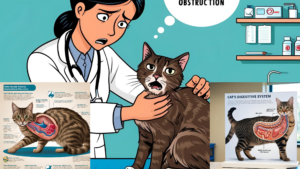
When your cat ingests objects such as string or plastic toys or playing items these objects will block their digestive pathway. Worse yet it produces repeated vomiting episodes that need emergency care to prevent further complications.
Solution:
Your cat must not have access to tiny objects.
Contact your vet at once when your cat keeps vomiting or exhibits signs of discomfort.
5. Parasites

Roundworms and other intestinal parasites in your cat can create stomach inflammation leading to vomiting. The risk of vomiting runs high among kittens and outdoor felines.
Solution:
Contact your vet for recommended timing when you should administer deworming treatments to your cat.
A clean environment for your cat will help prevent exposure to parasites.
6. Toxins or Poisonous Plants
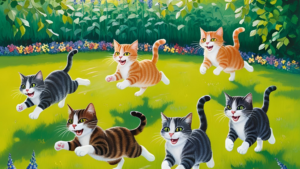
Intake of toxins or spoiled food or toxic houseplants leads to vomiting in animals. Several toxic plants remain hazardous for cats including lilies and both poinsettias and philodendrons.
Solution:
Take all toxic plants together with harmful substances completely out of your home space.
Call your veterinarian straight away when you notice possible poisoning in your pet.
7. Infections or Illnesses
Vrouch displays as a symptom highlight potential infections including feline parvovirus and bacterial infections while correlationously indicating chronic conditions including kidney disease or hyperthyroidism
Solution:
Check if your cat shows other symptoms like fatigue along with fever along with unexplained weight loss.
You should arrange an appointment with your veterinarian for both medical diagnosis and treatment of your pet.
8. Stress or Anxiety
When faced with moving or loud noise or adjustments to their lifestyle your cat’s digestive system harder to function properly. Anxiety creates vomiting as a side effect.
Solution:
Your cat will remain less stressed when you maintain peaceful routines throughout their environment.
Your cat can benefit from treatments like sprays and diffusers and supplements which help lower anxiety.
9. Chronic Conditions
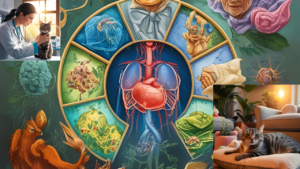
Treatments for inflammatory bowel disease (IBD) and pancreatitis often result in ongoing vomiting episodes. Your pet needs prolonged veterinary care together with consistent ongoing management for these medical issues.
Solution:
Your vet will provide direction to build an effective treatment program.
Serve your cat food designed for its health condition.
When to See a Vet

One or two vomiting incidents do not require medical intervention. Whatever, you always have to contact your vet if your cat:
Vomits multiple times in a day.
Your pet displays both dehydration signs as well as weight reduction.
Signs of blood should be detected in their vomit or stool.
Your pet shows low energy while rejecting food.
Preventive Measures
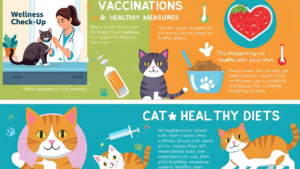
Your cat needs a nutritionally balanced and superior quality food for their meals.
Provide plenty of fresh water.
Holistic care of your cat will decrease the risk of hairballs.
Cats need to be isolated from harmful chemicals that could hurt them.
Routine visits to the vet keep early detections possible for health problems.
Cats experience vomit due to several medical conditions ranging from easy issues such as hairballs to severe medical issues. Being aware of the causes together with learning appropriate remedies stands essential for maintaining your cat’s health. Preventive measures combined with early veterinary medical interventions will help maintain both your cat’s health and comfort.
Why does my cat vomit after eating?
They may be eating too fast or have a food intolerance. Try a slow feeder or a diet change.
When should I be concerned about my cat vomiting?
If vomiting is frequent, contains blood, or is accompanied by lethargy or weight loss, see a vet.
Can hairballs cause frequent vomiting?
Yes, excessive hairballs can lead to vomiting. Regular brushing and hairball remedies can help.
What foods can make my cat vomit?
Dairy, spoiled food, toxic plants, and certain proteins can cause digestive upset.
Is occasional vomiting normal in cats?
Occasional vomiting (once a month or less) may be normal, but frequent vomiting requires vet attention.
What can I do to prevent my cat from vomiting?
Feed smaller meals, keep harmful substances away, and schedule regular vet checkups.
